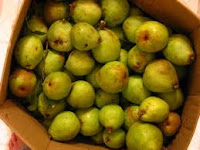
Coyotes have again been recently spotted in our neighbourhood. This is a fairly frequent occurrence at Dr. A. R. Lord, and it is important to educate ourselves and our children about coyotes.
Here is some information on how to deal with a coyote in an urban setting, from the Stanley Park Ecology Society's
Co-existing With Coyotes program.
What should I do if I see a coyote?
Note the date, time of day and what the coyote was doing. Call in the information to our hotline (604-681-9453) or e-mail the CWC program at:
coyotes@stanleyparkecology.ca. We keep a database of sightings in the Lower Mainland to help identify areas of increased coyote activity.
If the coyote is seen in a residential area encourage the coyote to keep moving by shouting and gesturing aggressively at it. Remove all attractants around your property: accessible garbage and compost, pet food left outside, rat and mice habitat (birdseed fallen from feeders often attracts rodents).
What should I do if a coyote approaches me?
If a coyote approaches, appear as large and threatening as possible. Make aggressive gestures (moving arms and legs), shout in a low voice, and throw rocks, sticks or objects. Never run; coyotes, like most canids, like to chase moving objects. Coyotes are naturally timid animals and will flee when confronted with aggression.
What should I do if the coyote keeps approaching me?
Continue to exaggerate the techniques listed above. Do not turn away or run. Maintain eye contact and move slowly toward a building or area of increased activity.
How can I prepare my child for potential coyote encounters?
Education is the key to preparedness. Children should be taught to
Be Big (stand up and raise your arms in the air),
Be Mean (sound angry, stomp your feet, and throw something at the coyote),
Be Loud (yelling "Go Away Coyote" so people nearby will come help), and
Never Run.
Any aggressiveness displayed by coyotes should be reported to the Ministry of Environment at 1-800-663-9453.
Why should I not feed coyotes?
A Fed Coyote is a Dead Coyote
Coyotes that are intentionally fed by people invariably lose their fear of humans and develop aggressive behaviour, having to be destroyed. In addition, human food does not meet the animal's seasonal nutritional needs. There is plenty of natural food around for wildlife in the city.
Feeding Coyotes is a Crime
Section 33.1 of the BC Wildlife Act provides a minimum $345.00 ticket and maximum $50,000 fine and six month prison sentence for anyone who "with the intent of attracting dangerous wildlife to any land or premises, provides, leaves or places in, or about the land or premises, food, food waste or any other substance that could attract dangerous wildlife to the land or premises.
If you suspect a neighbour is feeding coyotes you may print out an anonymous note to leave in your neighbour's mailboxes.
What should I do if I find an injured or sick coyote, or an abandoned pup?
People often see coyote pups and other wildlife babies alone in the spring. Before the animal is approached, it should first be observed for at least 24 hours to ensure the parent is not returning to take care of its young. Once you are certain it is orphaned contact your nearest wildlife rehabilitation centre. In the Lower Mainland residents can call the Wildlife Rescue Association of BC in Burnaby at 604-526-7275 or the Critter Care Wildlife Society in Langley at 604-530-2064.
Do not attempt to handle an adult coyote. Injured wild animals are frightened and in pain. In addition, adult coyotes are extremely difficult to catch so long as they have use of all four limbs. Instead call your local wildlife rehabilitation centre. For help with sick or injured adult coyotes in the Lower Mainland call the Critter Care Wildlife Society in Langley at 604-530-2064.

 For further information, fascinating facts and interesting history on this delicious fruit please read the PDF document on APPLES.
For further information, fascinating facts and interesting history on this delicious fruit please read the PDF document on APPLES.
 For further information, fascinating facts and interesting history on this delicious fruit please read the PDF document on APPLES.
For further information, fascinating facts and interesting history on this delicious fruit please read the PDF document on APPLES.














